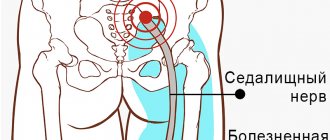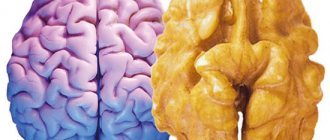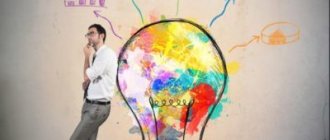How to develop and increase concentration
Concentration is the conscious focusing of attention on a selected object. It can be an object, image, idea, situation and much more. The mind purposefully selects from all possible points the one to which it will direct its attention. From this we can conclude that attention is selective, just like concentration. Otherwise, concentration is also called focus of attention. In order to increase concentration, you need to analyze what components it consists of and to improve which parts of it you need to put more effort into.
Human concentration
In textbooks on theoretical and practical psychology, they write a lot on the topic of human concentration, because wherever you look, we use it everywhere. Our daily life is not complete without concentration and focus. Even in order to take simple actions, make a decision, or find a creative idea, you need:
- Concentration of consciousness, or otherwise a volitional effort, in order to direct attention in a given way.
- The next task is to maintain attention on the selected task or subject.
- While maintaining attention on a specific object, the process of information processing occurs - thinking, searching for options, exploring problems.
- Coming out of the state of concentration means successful completion of the task and marks the end of the process. The focus of attention is limited in time, but you can learn to develop it and make it longer, so that in one session of concentration your work becomes more productive and leads to high-quality results.
Reasons of a physiological nature
- Lack of vitamins. A lack of vital substances in the body (especially vitamin D) leads to a deterioration in the synthesis of neurotransmitters and disruption of the nervous system. As a result, a person becomes inattentive and absent-minded.
- Some cerebrovascular diseases (for example, multiple sclerosis, hypertension, Alzheimer's disease).
- Hormonal disorders associated with the thyroid gland, adrenal glands or diabetes.
- Metabolic disease.
- Anemia.
- Brain injuries.
- Cervical osteochondrosis (blood circulation in the vessels of the brain worsens).
It is very important to find out the root cause of the problem, because this is the only way to effectively solve it or at least improve the situation.
How to improve your concentration
There are various methodologies to improve concentration. They use special techniques. But before we talk about concentration techniques, we need to consider the factors that negatively affect the mind and its ability to concentrate.
Agree that if our mind were not constantly distracted by external stimuli and were more focused, then we would not be looking for ways to increase the efficiency of attention.
Often we study ways to improve attention not because we want to develop it, but because we notice how it has decreased. The length of time during which we are accustomed to concentrating on something has rapidly decreased, and we know the reason for this deterioration.
Human dependence on means of communication
The development of the Internet, mobile technologies, social networks, fragmented communication, and the habit of working in multi-task mode lead to a decrease in attention span and subsequently even to attention deficit disorder.
Separately, I would like to highlight the so-called multi-task ability - performing several tasks at the same time. The new concept of efficiency, which is still almost extolled to the skies and considered one of the characteristics of effective work, in fact leads to the opposite - to disorganization, lack of focus, increased stress and a drop in the quality of task performance.
Mobile devices and endless chatting seem like cute and fun entertainment or a common means of communication in professional activities. However, they bring little benefit to the human psyche. The negative impact of new technologies has long been scientifically proven. But who cares, when a large number of modern people cannot live without checking messages on social networks and instant messengers every hour.
It has already become a kind of addiction. But it is precisely the dependence on technology that creates the appearance of action, the illusion of the fullness of life. If we exclude this component, what will remain? Emptiness, when a person is finally left alone with himself, then he does not know what to do with himself. Thoughts are spinning in your head, you need to come up with something again, another action, what to do, where to go, what music or movie to entertain yourself with again.
Man has already forgotten what silence is. In real external life it does not exist and never existed. What about the inner world? Is there silence there? It would seem a strange question - we don’t talk to ourselves. This is where we are wrong. We're still talking. And all without exception. Listen to your thoughts at this moment. What are you thinking about? What is your mind telling itself? This is how the endless dialogue with ourselves continues, and we don’t even notice it, deafened by the outside world and the noise of its entertainment.
Possible consequences
At the initial stage of development of pathologies, an individual may try to ignore them, but the symptoms will affect his performance and communication capabilities. Absent-mindedness prevents you from fully concentrating on completing a task or maintaining a conversation.
This provokes irritability and a general deterioration in mood. The longer a person delays the examination, the more time it will take for treatment.
With age-related developmental features, treatment is not required. Children's disorders are caused by an insufficient level of development of cognitive functions. As the child gets older, he or she will outgrow the negative symptoms and will not have problems concentrating.
If the critical age has passed, but the symptoms remain, consultation with a psychotherapist is mandatory. In adolescence, most problems with attention can be stopped and the disease can be prevented from becoming chronic.
Methods of concentration
A huge number of methods of concentration are aimed at narrowing perception and directing the area of attention along a clearly limited channel. This, of course, makes sense if we want to continue to transform ourselves in the image and likeness of a well-oiled machine. On the contrary, if the goal of our search for the right method is also to improve ourselves as an individual, then we need to approach the choice of methods more responsibly and find ones that would be aimed at the comprehensive development of attention and other cognitive abilities. At the same time, we will not only improve our concentration, but also direct our efforts to improve ourselves as individuals through the study of our spiritual essence. A person’s deep awareness of himself as a unique personality is inseparable from the process of self-knowledge.
Methods for eliminating pathological symptoms
If it is determined that the cause of decreased attention is an anxiety or depressive disorder, the patient is prescribed antidepressants. If the cause is organic brain damage, use nootropics. A decrease in concentration caused by stress cannot be cured with medication until the source of stress is eliminated.
During treatment, daily routine and nutrition are of great importance. The patient must adhere to the schedule recommended by the doctor and avoid overwork.
Exercises for concentration
In the practice of yoga, which is completely dedicated to understanding one’s essence, much attention is paid to the study of the human psyche, the processes of cognition and the development of spirituality. In order to illustrate what has been said, we will provide a short list of exercises and techniques that contribute to the development of a person’s intellectual and mental abilities.
Meditation
Meditation promotes the development of conscious attention, analytical thinking, intensification of empirical experience and knowledge of oneself as a spiritual entity united with the whole world. Types of meditations useful for mastering in the initial stages of self-knowledge:
- Trataka
- Analytical
- Dynamic
- Vipassana.
In preparation for meditation, you can practice dharana. This is concentration on an object followed by disidentification of oneself with sensory experience (only for the duration of practice).
Pranayama
It makes sense to practice control techniques and concentration on breathing immediately after meditation or simultaneously with its development. Pranayama is a great way to bring your attention to the process of breathing. With its help, you can not only completely restore lost concentration, but also immerse yourself in your inner world and better understand yourself. Four types of pranayama that are best to start practicing:
- alternate breathing - Anuloma Viloma;
- intermittent breathing - Viloma;
- “square” breathing - Samavritti;
- extended breathing - Apanasati Hinayana.
Ways to concentrate
Stopping internal self-talk is the most effective method for concentrating the mind and clearing the mind. Usually this method is not covered in special literature devoted to a person’s work on general efficiency and self-development. Instead, preference is given to lower-order techniques that increase concentration by 20 percent. The efficiency of such programs and methods for developing concentration is very low.
But the results are presented to the public as outstanding; the course participants need to be given a sense of pride in themselves. Therefore, by setting the bar lower, it is much easier to achieve what is stated in the program. If you set higher goals for yourself and think about how to radically increase the power of concentration, then you need to work on yourself. It all starts from the beginning, with introspection, awareness of yourself as a person and what qualities you would like to develop.
You need to create an image of yourself, how you would like to see yourself in the future. When such an image is formed, its mental picture appears, then you can begin to work on acquiring the desired qualities that need to be developed.
Many people say that they have no concentration - what to do in this case
A large number of people ask the question: “What to do if there is no concentration?” We have already figured out the reasons for the lack of concentration. We need to start solving the problem in order to minimize the impact of distractions on the psyche:
- try to establish temporary control over your stay on social networks;
- spending time with friends face to face;
- increase the time you are present in real life;
- devote more time to activities outside the sphere captured by the Internet;
- reduce the use of mobile devices;
- increase physical activity;
- find a new hobby and devote more time to it.
In order to implement an action plan to reduce the time spent on the Internet and, therefore, transfer the sphere of communication into the real world, where the interlocutors are located opposite each other, participation in joint events and retreats is well suited.
Methods of concentration
If you are very determined, then you can arrange a kind of communication “diet” or, even better, a “fast”. It looks like this:
- you are completely disconnected from the outside world - no media, instant messengers, communication with friends;
- stay in silence, isolated from external stimuli;
- practice meditation, which helps to establish internal silence;
- initiate spiritual practices, which helps to establish a connection with the inner “I”, reunite the disconnected parts of the internal image and self-understanding.
As a result of all this, you will experience changes in your perception of reality. Lost concentration will return again because you will learn to control your thoughts. You will begin to be aware of them. This is what meditation teaches us. You will be able to monitor the direction of your attention and clearly notice those moments when it is about to be distracted. You will be able to return it in the direction you need and stop worrying in vain about your inability to concentrate.
The determining factor in the focus of attention is curiosity.
It is impossible to achieve concentration of thoughts without choosing a goal of attention. By choosing what you need to focus on, realizing your goals, all the “why” and “what for” you want to concentrate on, it will become much easier for you to direct your consciousness in a given direction. Understanding the meaning of what you are doing is very important. To paraphrase Nietzsche, we can say that if a person has WHY to concentrate attention, he will find an opportunity HOW to do it. Find out why you want to study a certain topic, read a book, listen to a lecture, etc. Your attention will naturally follow the goal found.
Interest, curiosity - try to awaken these qualities in yourself. Unfortunately, they are forgotten; the motive for many actions is not inner desire as such, but the pressure of necessity. It turns out that a person is doomed to a boring existence, where obligation prevails over the joy of knowledge and discovery.
Bring enthusiasm and healthy curiosity back into your life, and you won't have to suffer from the awareness of the dull flow of everyday life. You will understand that there is no such thing as empty and small. There are no small things in life. The only difference is what position you decide to take, whether to open your mind to new things or continue to dwell in the old paradigm of thinking.
By changing your outlook on life, you will begin to understand your goals more clearly, you will find yourself, and every moment of your life will be filled with meaning. Looking back, you will remember with a smile where your self-knowledge began, the journey into the depths of yourself - with that very work on concentration! No matter how great your problem was, you managed to solve it, and with it, find yourself.
Preventive actions
It is important for a child to maintain a balance between active games and quiet activities. It is advisable to teach him at least an hour before bedtime not to play games that require concentration and emotional involvement. It is important to monitor your diet, add vitamins and polyunsaturated fats to it, which are necessary for the normal development of the nervous system.
Adults should give up bad habits and monitor their stress levels. While working, you need to take short breaks and engage in relaxation practices: visualization, meditation.
What is absent-mindedness
First of all, absent-mindedness is a state of inattention, constant forgetfulness, which constantly accompanies a person. It is worth remembering that a person is not born with absent-mindedness, he acquires it throughout his life.
The presence of this disorder in everyday life can lead to various problems, and sometimes quite serious ones. Communication with such people is quite troublesome; they cannot build normal relationships and have a very difficult time at work. Therefore, this condition must be treated so that it does not lead to more serious consequences.










